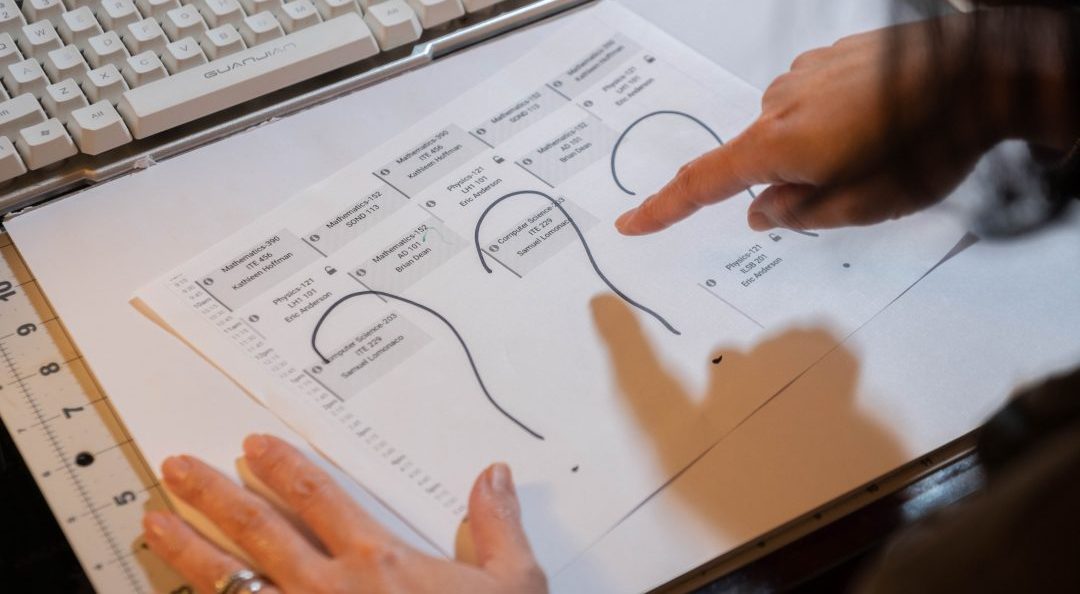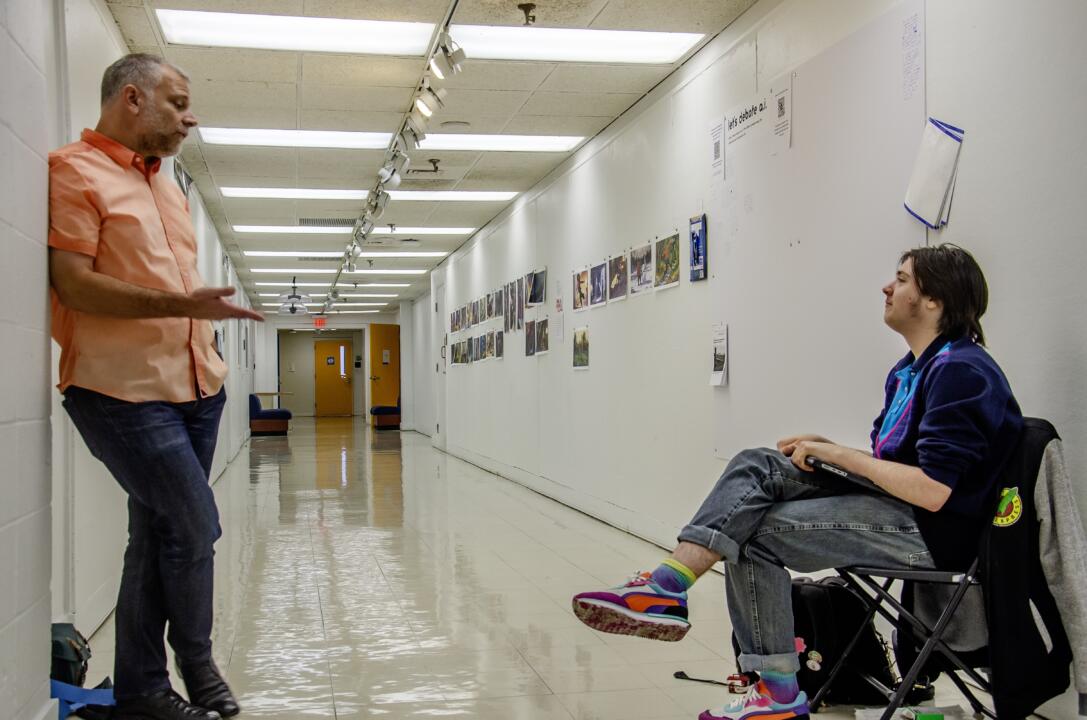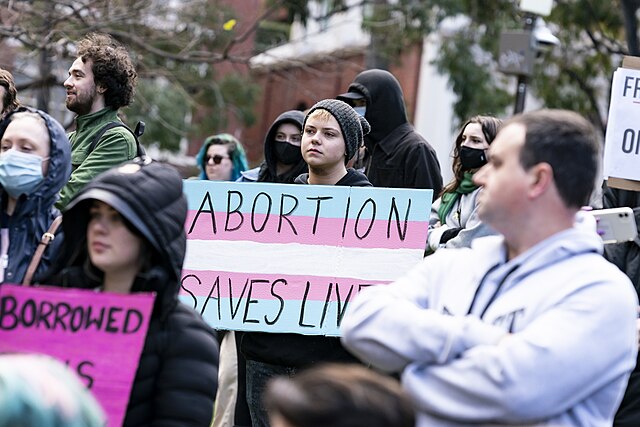As the University of Maryland, Baltimore County wraps up an unprecedented semester, students are beginning to look forward to fall 2020, scheduling classes, applying to jobs and seeking out research or internship experiences.
But UMBC’s returning students face the impossible: preparing for the unknown. Students do not know yet whether next semester will continue with online instruction, resume in-person classes or find some solution that falls in the middle due to the threat of COVID-19.
An email correspondence sent to the UMBC community and signed by President Freeman Hrabowski and Provost Philip Rous explained that UMBC does not yet have a plan for fall 2020, but will be “[considering] a variety of potential scenarios before commiting [sic] to a plan,” though it did not expand upon what those scenarios would be. The email also noted the establishment of “a fall planning coordinating committee,” which will be co-chaired by Lynne Schaefer, provost and vice president of Finance and Administration, “to explore options and facilitate plans for physical campus reopening.” The email did not indicate when a decision will be announced to students.
Mike Lurie, media relations manager for the University System of Maryland, reiterated via email that several options were being considered regarding the possible return to school in the fall. When asked about a specific solution that would entail students returning midway through the semester, Lurie replied that “system leadership is keeping an open mind and will emphasize planning that maintains both flexibility for campus leaders and emphasizes what’s best for the students for both learning and health/safety.”
The Baltimore Sun reported that University System of Maryland Chancellor Jay Perman is forming an advisory group, composed of leaders from a variety of departments across USM campuses, to determine when this return to campus may occur. Lurie told The Retriever that “more precise information [about returning to campus] will be available in the coming weeks.”
Students contend with lack of information
But as other schools around the country begin to announce decisions — or, at least, tentative plans — for fall 2020, UMBC students are beginning to feel increasingly concerned and confused about what the upcoming semester may hold for them.
Bella Dastvan, a sophomore geography and environmental systems major, is one such student; she is planning to take two lab courses in the fall that will count towards her major’s requirements, but she is worried that if the fall semester remains online, she may not get the most out of these courses. This could potentially hamper her success in future classes or in her career as a researcher.
“If it’s an online module, you’re still getting information but you’re not really applying yourself if you’re not physically there, if you’re not physically at the field,” she explains.
Additionally, a research opportunity she had been looking forward to, working with a Ph.D. student studying birds’ behavioral patterns, may be in jeopardy. Fortunately, the opportunity is not completely off the table. The doctoral candidate she would have been working with alerted her that they may be able to maintain social distancing while completing this research, which, according to Dastva, takes place “isolated in the field.”
Ultimately, though, the transition to online learning has been easier on Dastvan than it has been on others — she had previously taken an online class during the winter semester, and so was already familiar with distance learning by the time classes moved online in March.
Transfer student Rachel Rehling, on the other hand, has struggled significantly in her online courses, and although she is signed up for fall classes, she plans to drop them and take the semester off if online learning continues.
“It’s not my favorite option, but I really don’t do well with online classes,” Rehling explains. She benefits from face-to-face conversations with her professors about the material, something she has recently found to be lacking in her online courses.
In addition, as a biochemistry major, taking a semester off could have serious repercussions for Rehling in terms of degree completion; as some courses are only offered every other semester, she fears that missing one semester could in fact throw her studies off by an entire year.
Despite the challenges many students are facing, Dr. Kenneth Baron, assistant vice provost for academic advising and student success, reports that 66.07% of students have registered for next semester’s classes, down only 3.14% from the number of students who had registered by this time last year.
Professors plan for worst case scenario
Professors have as little information as students regarding when and how UMBC will eventually return to in-person learning. Nevertheless, some professors have opted to begin preparing for the coming fall semester under the assumption that classes will remain online.
One such professor is Dr. Mariajose Castellanos, a lecturer in the Department of Chemical, Biochemical and Environmental Engineering. She is teaching what she says is a notoriously difficult chemical engineering class and feels that, if classes do end up remaining online in the fall, she will regret it if she does not begin planning for that situation well in advance.
“I think if I try to be optimistic, and just say, ‘oh, maybe everything will be fine,’ and it’s not, I don’t want to be in the same situation as I [am] now,” she explains, referring to the fact that UMBC professors had little more than a week to prepare for the pivot to online classes in March.
Her preparations include producing guided videos to help students understand how to read their chemical engineering textbook and developing basic tenets for students’ classroom behavior based on her experiences this semester.. This extra preparation, she feels, will be useful additions to the class even if UMBC returns to in-person learning in the fall.
Dr. Lindsay DiCuirci, an English professor, is also looking ahead. She is planning to co-teach a new seminar for freshman humanities scholars in the fall, and part of the development of that course has involved creating two syllabi — one designed for online learning and one designed for a traditional class. The seminar, which focuses on the history of books, was supposed to be a hands-on course that would meet in the Special Collections area of the library. DiCuirci and her co-professor, Dr. Craig Saper, a professor of Language, Literacy and Culture, have already begun brainstorming how their students may be able to have those hands-on experiences in their own homes.
“The contingency plan syllabus … would look for ways to ensure that some of that hands-on work could be done but wouldn’t at all be dependent on access to any kind of specialty books or materials. [It] would be things [that are] found easily around the house, or things that we could actually get to students,” DiCuirci says, explaining that she and Saper have discussed the possibility of mailing items to students if needed.
Though the wait for the USM to make a decision regarding the fall semester may make students anxious, there is one thing they can be certain of: This time around, many professors will be able to spend months adjusting their courses to an online format, rather than just over one week.
“I do think that with the additional trainings that we’ll all receive and with the extra support that will be provided by the school … we will have the time and space and the resources to build the courses with the perspective of online instruction,” DiCuirci says, “rather than the kind of slapdash [transition] that we had to do [in March].”


